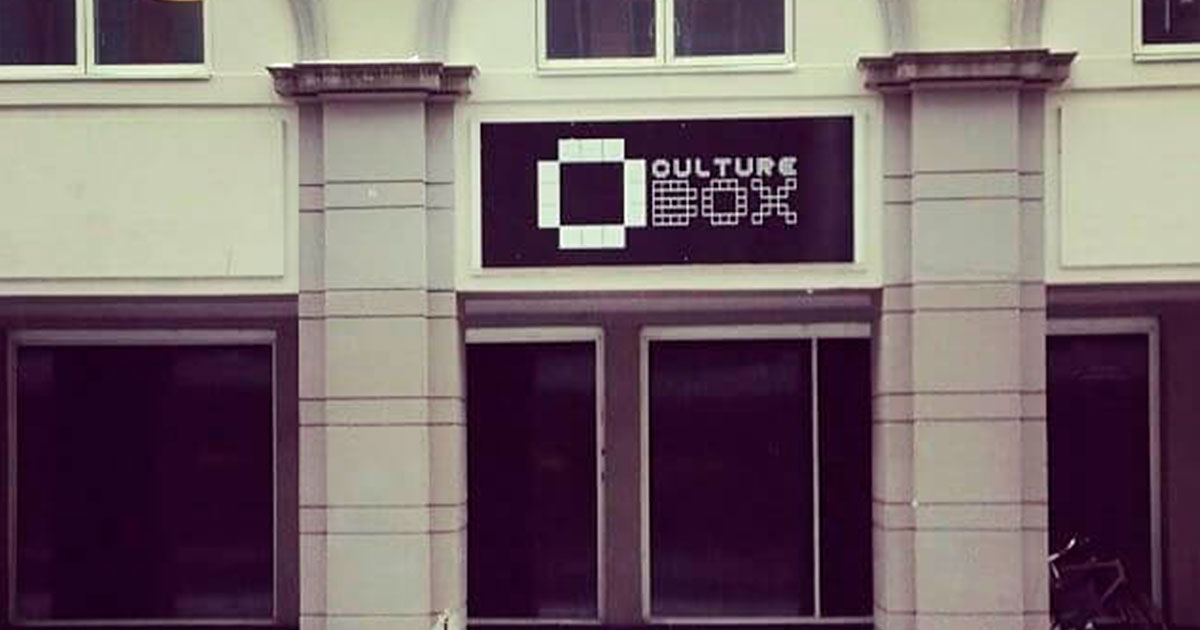Back in 2005 the first club with a focus strictly on electronic music opened in Copenhagen. The ambitious club Culture Box has proven a mainstay even though it has hit some bumps along the way. We take a look behind the scenes with a talk with founder Loke Busch and Tim Andresen who’s responsible for the music.
Hello Loke! How did you get the idea to start Culture Box?
After living in Italy for one and a half year. I frequently guested an electronic venue called “Link” in Bologna. It was a raw undergroundclub with different types of people and genres. I was totally in love with the place and the atmosphere. I then wanted to make a place with the same soul and atmosphere, so I sold the idea to my friend and former partner, when I came home. I believe we succeeded in creating a place like “Link”.
Why did Copenhagen need Culture Box?
When we opened Culture Box in 2005, Copenhagen didn’t have a place from where the culture of electronic music could develop. It was only those who attended secret parties in old warehouses who knew of it. If the knowledge should spread in Copenhagen, we needed a place, which was open every weekend with a showing of international artists mixed with local Danish artists.
Did you encounter any challenges?
Yes, they lined up from the beginning. We were two poor guys with a vision but no knowledge on running a business. We were artists wishing to build a place for other artists, but the less interesting things like economy were challenging. We still spend all the surplus money on improving the experience for our guests.
How has it been to run Culture Box?
It’s been tough but rewarding! It’s difficult having to assume so many roles at once. Staff management, financial management together with all the practical stuff like building the interior of the club. That means 12-15 hour working days. One of my biggest goals was to get Culture Box approved as a regional venue and thereby getting a governmental acceptance of electronic music. So those nights where one of my favourite artists is lighting the floor on fire, and you are standing there with a cold beer watching people having a great time is when all the work makes sense.
Today Lokes former partner is no longer a part of Culture Box but Tim Andresen is. He is responsible for the musical profile of Culture Box and is also a co-owner of the club.
How do you choose the names for Culture Box?
It differs a lot. It’s a mix of the scene in Denmark and international names, which we think are relevant for the Danish audience. Sometimes we find the names ourselves but we also cooperate with teams like CPH Deep, who curates a lineup for an evening. We also ask our audience on Instagram and Facebook, who they want to see. Our focus is mainly house and techno, so we use our audience and teams, because we can’t be the experts on all subgenres.
Who is your proudest booking?
John Digweed. It took me fifteen years. He was the worlds most popular DJ in 1999 and he has kept his game strong ever since. Later this year we also have Sasha, who hasn’t been in Denmark since 2001. It impresses me that we can have this kind of names in our small club. Denmark doesn’t have clubs with 500+ capacity so the biggest international names are often out of reach.
How does Culture Box stay relevant in the shifting nightlife of Copenhagen?
The quality of the music. We are the first and only genrespecific electronic venue in Copenhagen. We have a “music first”-policy, so the bar and everything else comes in second row.
But you have now lost your status as a regional venue. How does that effect your bookings? Are you forced to be more commercial?
It depends what you mean by commercial. When I joined in 2016 my focus was fixing the economy. That succeeded. We have a healthy economy. We don’t make money, but we are paying the bills on time which hasn’t always been the case. We don’t book more commercially, but we spend more time negotiating with all our creditors and getting better deals. We also book more local DJ’s than earlier, and we feel that our audience trust our bookings even if they don’t know them. We wish to give local DJ’s with talent a chance.
What will the future hold for Culture Box?
We will try and reach wider musically and expand our genres. An example will be drum and bass-parties. We also have a focus on sharing our knowledge through DJ-schools and networkmeetings where young producers can get feedback by professionals. We also have a plan to upgrade our lightning in Black Box in the fall and other facilities.
What will happen with Culture Box when KB18 closes, and you are the only techno-club in Copenhagen?
I have a wish to have open more days in the week. In my opinion the more things that happen in this town, the more interesting this town is. There have always been some healthy competition between KB18 and Culture Box, but we have tried to book something different when they have had big bookings and vice versa. I think it’s sad for Copenhagen that we lose a place, but maybe something new will open.
By Rasmus Stegmann


